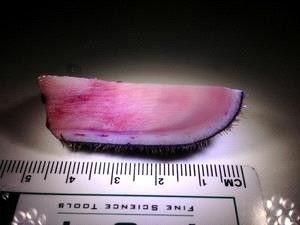
Molecular Genetics

Mission
Collaboration among the Institute science staff has always been a major strength at the core of the Institute’s mission. The interpretation of genetic data from wildlife species hinges on a sound knowledge of the biology and behavior of the species in question. Pairing knowledge of genetic techniques with species-specific expertise has resulted in an exciting and diverse array of genetic studies aimed at gaining a better understanding of Texas wildlife.
Our Commitment
The Molecular Genetics Program is committed to the development of new genetic markers, automation of laboratory instrumentation, and improved computing power in order to make large-scale genetic studies of wildlife populations feasible. When genetic tools became available, wildlife scientists began to use genetic methods to answer questions about wildlife ecology and behavior. This relatively new and rapidly expanding field is now commonly referred to as molecular ecology. Due to the ever widening array of questions that can be answered using genetic techniques, the Institute science staff recognized the need for on-site expertise to help integrate genetic components into studies of wildlife ecology and management.

